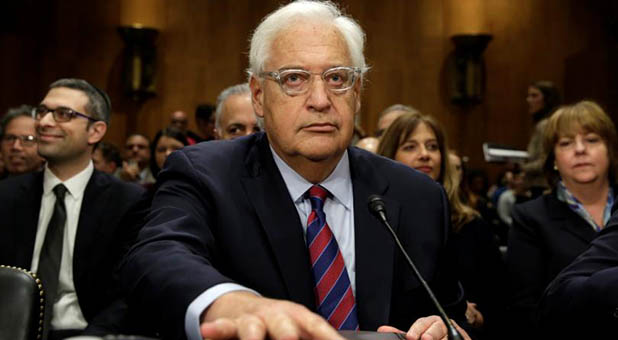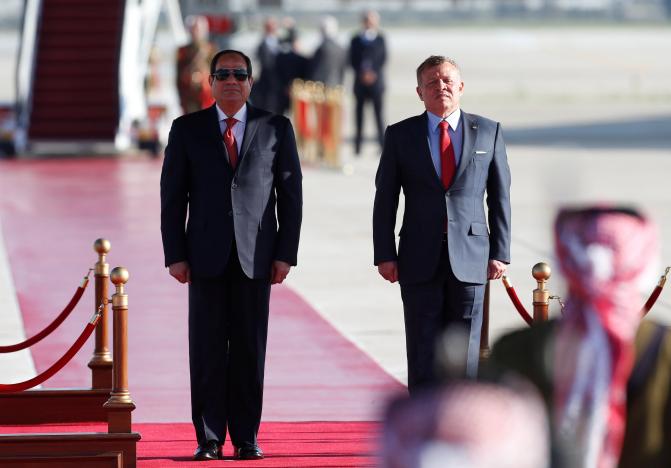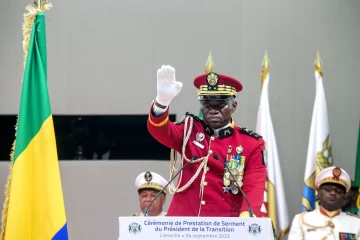Yesterday, March 29th, the Arab League gathered for the Amman Summit. This was the 28th such summit since the Arab League was established seven decades ago. The purpose of the summit is for Arab leaders to discuss the challenges the Arab world is facing today, of which there are plenty. Expectations for the Amman Summit were low, and rightfully so. Even if the Arab leaders could miraculously reach a consensus on each of the many items on the summit’s agenda there are still multiple extra-regional powers with conflicting agendas that also need to be contended with.
The host country, Jordan, will be prioritising the Palestinian question, as it is the one item on the agenda on which the Arab leaders are likely to find a consensus. This issue has been prioritised this year largely because of the Trump administration’s actions in its first two months. First, there is the pending relocation of the U.S. Embassy to Jerusalem. Then at Trump’s meeting with the Israeli Prime Minister Netanyahu in February, the U.S. President demonstrated the new administration’s willingness to forego the two-state solution. This has been exacerbated by the U.S. Senate confirmation of David M. Friedman as the next ambassador to Israel this past Thursday.

During the presidential campaign, Mr. Friedman made some decidedly incendiary comments about the Israeli-Palestinian conflict. Last year he criticised the two-state solution calling it an illusion. He also accused J Street supporters of being worse than kapos. J Street is a U.S. based non-profit group that advocates for a two-state solution to the Israeli-Palestinian conflict. Kapos were prisoner functionaries in Nazi concentration camps assigned by S.S. guards who supervised fellow prisoners. At his Senate audition, Mr. Friedman backtracked on these statements expressing regret for them. He added that he was open to a two-state solution if a peace agreement between the two sides could be established, although he still expressed some scepticism about this. Mr. Friedman’s confirmation in light of his past comments, despite his retraction of them, in combination with the Trump administration’s openness to a one-state solution and the pending relocation of the U.S. Embassy to Jerusalem are developments that are deeply worrying to the Arab League’s regional security concerns. However, beyond roundly condemning these developments the Amman Summit is not likely to accomplish much on the Palestinian question.
The Syria crisis is a much stickier issue for the Amman Summit. The Arab League has already been criticised for its inaction on the Syria crisis and the Amman Summit will not change anything in this regard. The Arab League’s inability to act on the crisis in Syria is hardly surprising given the complex and varied relationships involved in the conflict. There are 2 million Syrian refugees in Egypt, Iraq, Jordan, and Lebanon. Approximately 1 million of those are in Lebanon and more than half a million in Jordan. In 2011, Syria was suspended from the Arab League at an emergency session in Cairo. However, Lebanon and Yemen along with Syria voted against the suspension and Iraq abstained from voting. Neither the Arab states nor the international community have been able to reach a full consensus on the Syria crisis — nor are they likely to anytime soon. Jordan has put forward a resolution on the Syrian refugees, but this only includes the affirmation of the temporary status of Syrian refugees in host countries as well as calling for other Arab nations and donor countries to increase aid to host countries. This is neither new nor profound.
The Amman Summit itself is not without controversy. In attendance will be President Omar al-Bashir of the Republic of Sudan who has been in power since 1989. The International Criminal Court issued warrants for al-Bashir in 2009 and 2010 for war crimes and crimes against humanity. Jordan, having ratified the Rome Statute in 2002, is obligated to either deny the president entry or arrest him. The international group Human Rights Watch has called on Jordan to fulfill its obligation to the ICC. Jordan, however, has stated that Sudan, as an Arab League member, has the right to attend the annual meeting.
The crises in Libya and Yemen will also be discussed at the Amman Summit, but will not be the central focus. Yemen was originally supposed to host the summit this year but was unable to do so because of its ongoing civil war. Again, no change in the Arab League’s stance on these crises is expected as an outcome of the Summit. The political climate both regionally and internationally makes it exceedingly unlikely that the 2017 annual gathering of the Arab League will be a game-changer.

Nevertheless, that the Arab League is able to meet and get on with business as usual amidst so many regional crises is encouraging. The Amman Summit is also certainly an opportunity for Jordan, as the host country, to strengthen its standing not only within the Arab League but also with its extra-regional allies such as the U.S. and U.K. In February, in the lead-up to the Amman Summit, King Abdullah II met with Lebanese President Michel Aoun, who came into office late in 2016, to discuss strengthening ties between their two nations. The Jordanian King also met with U.K. and U.S. leaders to confirm economic and security ties, meeting with British Prime Minister Theresa May and U.S. Vice President Mike Pence earlier in March. The King also met with Trump’s Special International Negotiations Representative Jason Greenblatt on March 16th to discuss the resumption of the Israeli-Palestinian peace process.
The Amman Summit is the fourth Arab League summit that Jordan has hosted, and the second for King Abdullah II. The last summit in Amman was in 2001 only months before 9/11. King Abdullah II’s father and predecessor King Hussein presided over the more memorable 1987 summit in Amman which saw the agreement to allow member nations to re-establish relations with Egypt. This ended the boycott of Egypt following the ratification of the Egypt-Israel Peace Treaty in 1979. Arab League summits can have a profound effect on regional issues and member states. The Amman Summit will not be among them.


